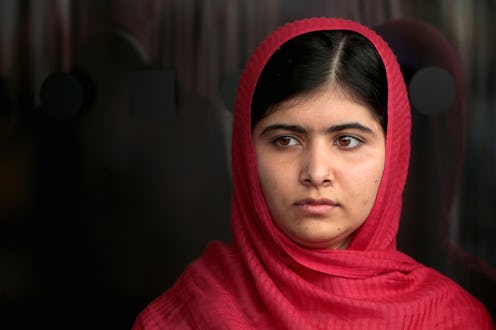News
Pakistan's Private Schools Ban Malala's Book
Schoolchildren in Pakistan will have a tough time getting Malala Yousafzai's best-selling book, because the organization that controls the country's private schools — the All Pakistan Private Schools Federation — decided to ban it. The APPSF is the umbrella group for more than 40,000 private schools in the country, and it has also begun calling on the Pakistani government to ban the book. The group says that in her book, the teenage activist — whose father ran a private school in the Swat Valley — is pushing a dangerous western agenda.
"Everything about Malala is now becoming clear," said Adeeb Javedani, its president. "To me, she is representing the West, not us." This is, of course, a common refrain: when opposing any sort of western-backed initiative, all reactionary groups have to do is say that the proposal is a foreign influence. But it's tough case to prove when the initiative under discussion is education, and the activist under fire is a teenage girl who began advocating for the cause as a tween.
But the group distinguishes between Yousafzai's advocacy and her book. Kashif Mirza, the chairman of the private school group, said that the teenager had been "a role model for children," but "through this book, she became a tool in the hands of the Western powers." Not that we're splitting hairs or anything.
What made her a tool of western powers? Well, the teenager apparently referred to the prophet Muhammad in her book without saying "peace be upon him," as is customary for many Muslims, and expressed sympathy for Ahmadi muslims and Christians, minority faiths in Pakistan. She also did not condemn outright Salman Rushdie's famously controversial book, The Satanic Verses, and instead quoted her father as saying, "First, let's read the book and then why not respond with our own book." Scandal!
Some say that this decision is an example of the influence of the Taliban and other far-right groups in the country. The Pakistani government is under heavy criticism for its involvement in U.S. drone strikes on the country, which have caused heavy civilian casualties. Meanwhile, the Pakistani Taliban named its new leader earlier this week: Mullah Fazlullah, the leader of the bandits who tried to kill Malala Yousafzai, and who attacked girls' schools in the region.
Yousafzai, meanwhile, has been living in Europe since her attack. In addition to writing a book about her experiences being a teenage education activist, she was nominated for the Nobel Peace Prize. She ultimately did not get the prize, which instead went to the Organization for the Prohibition of Chemical Weapons.
